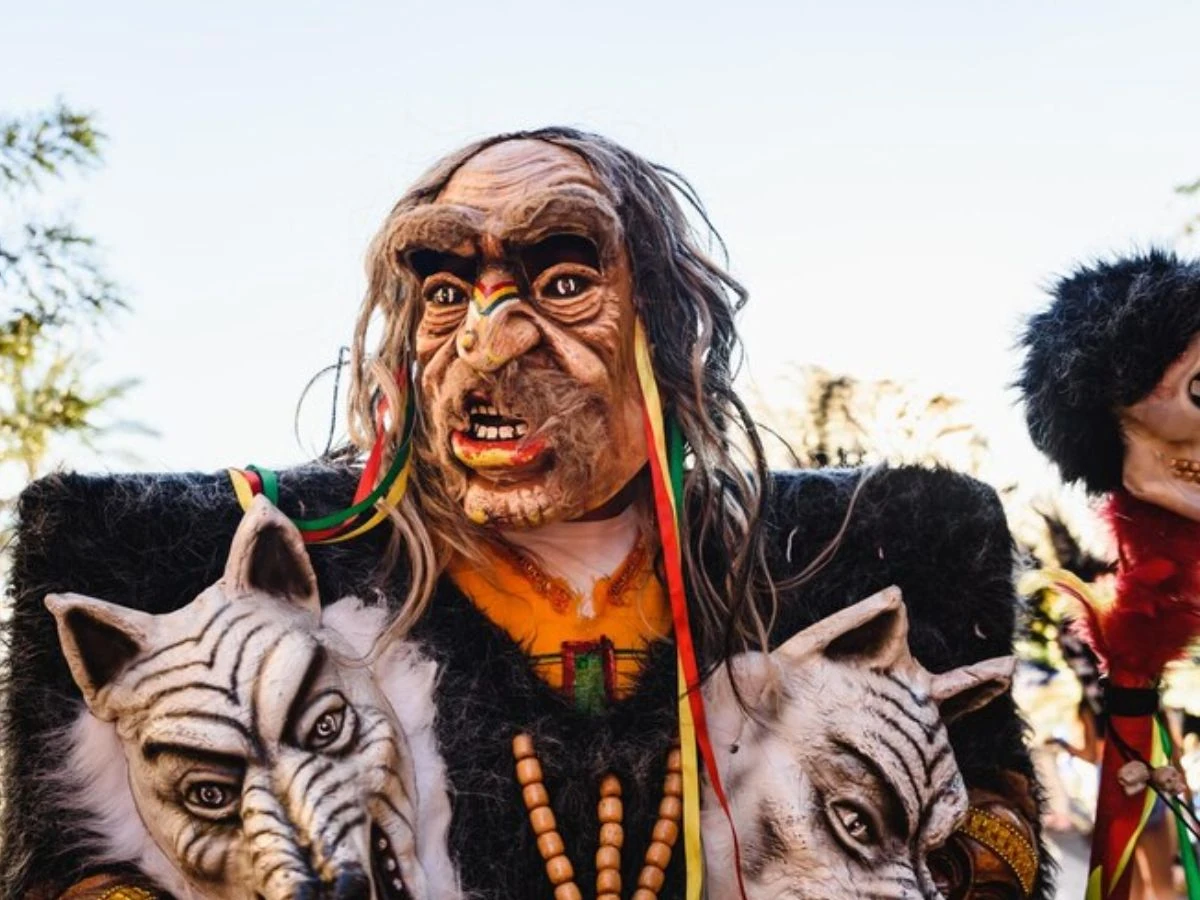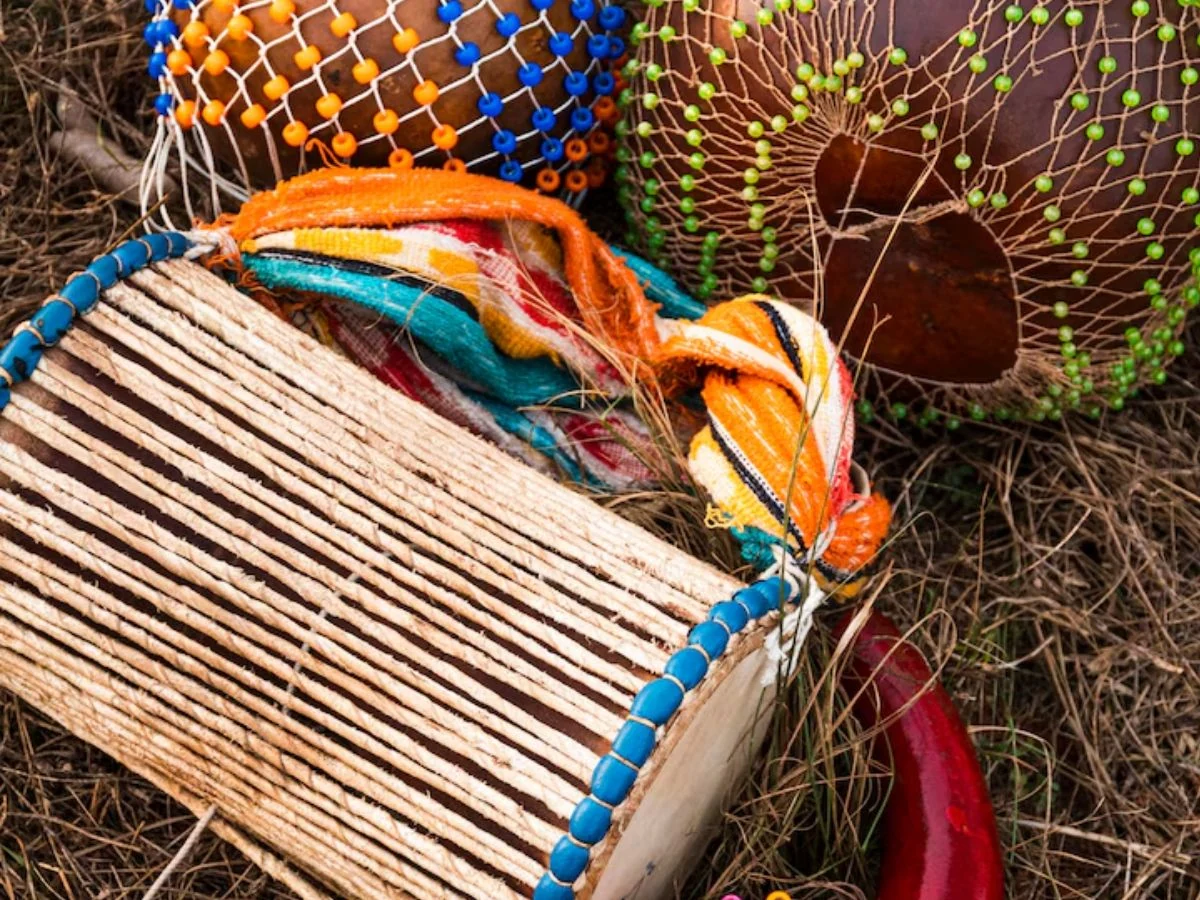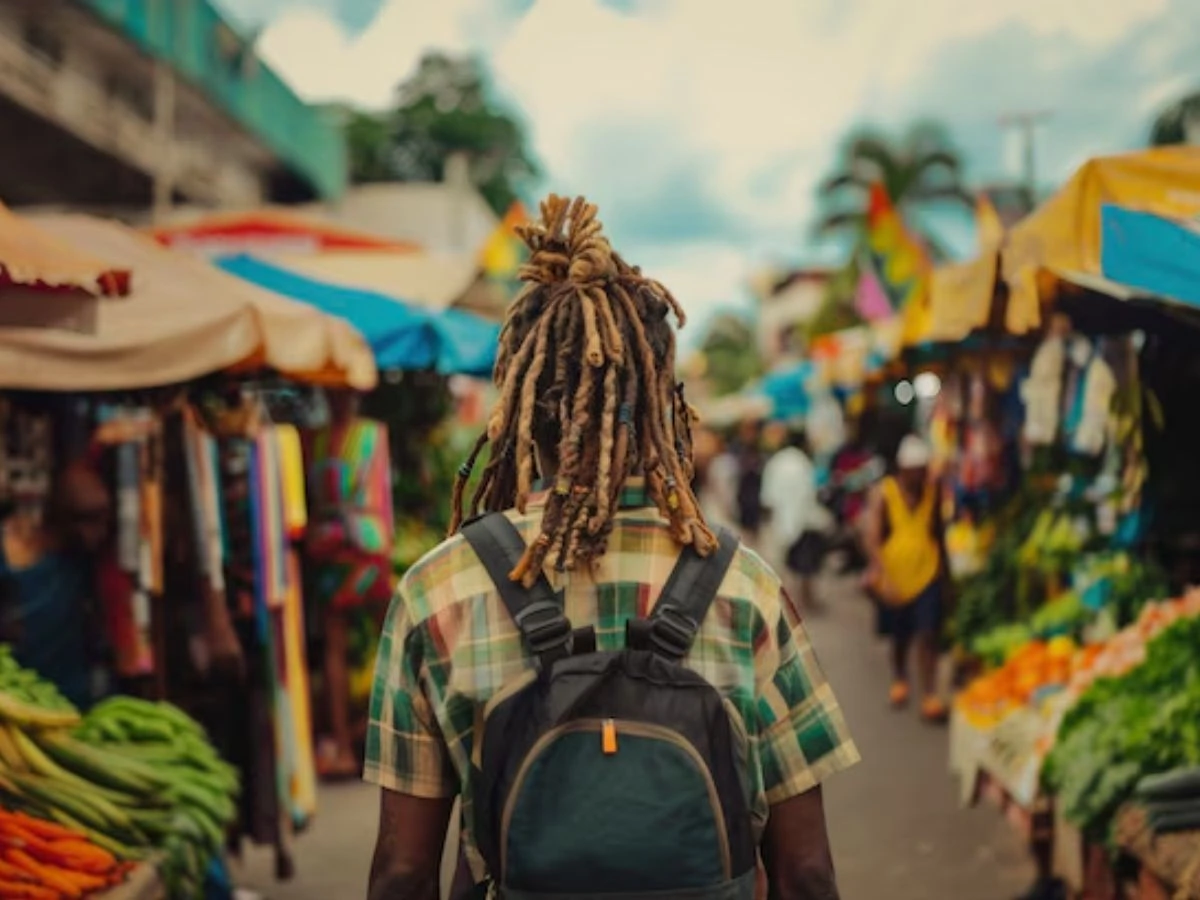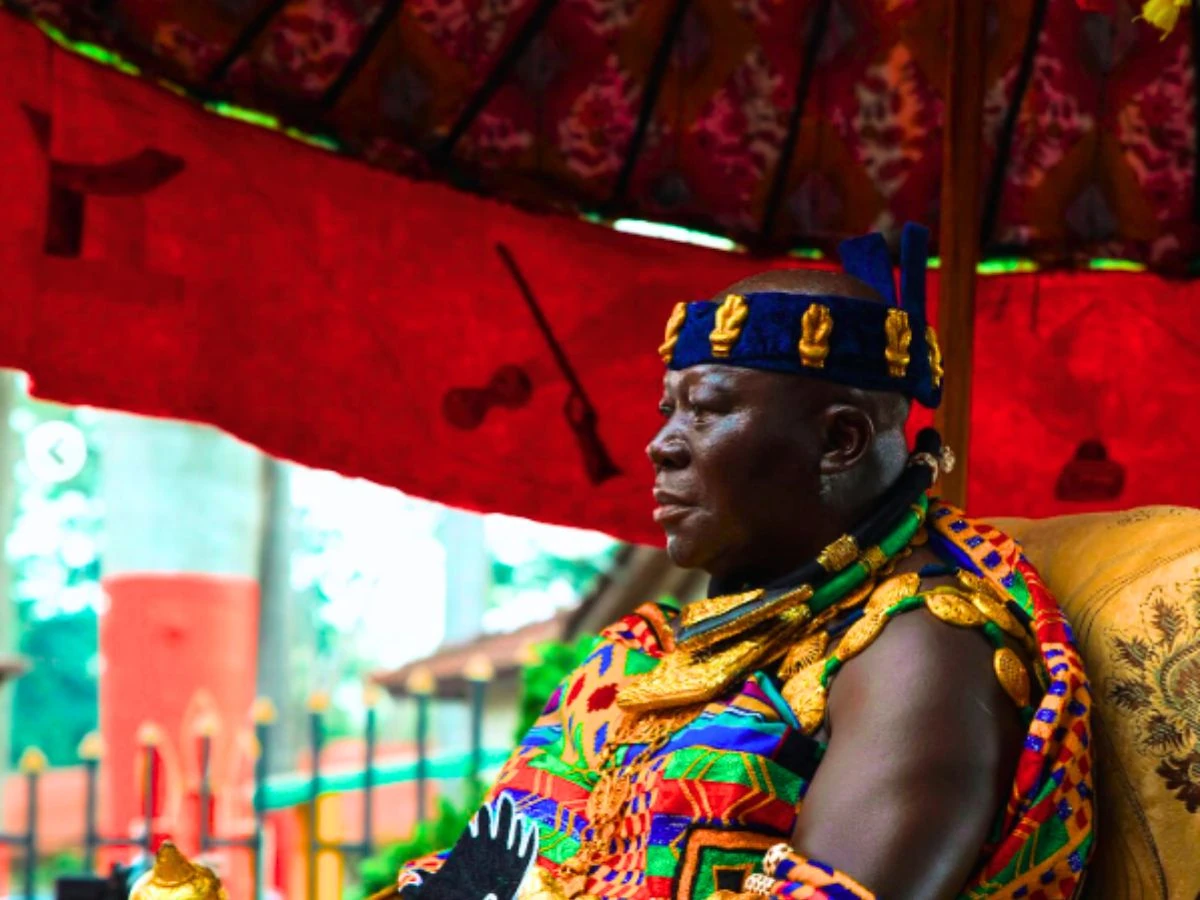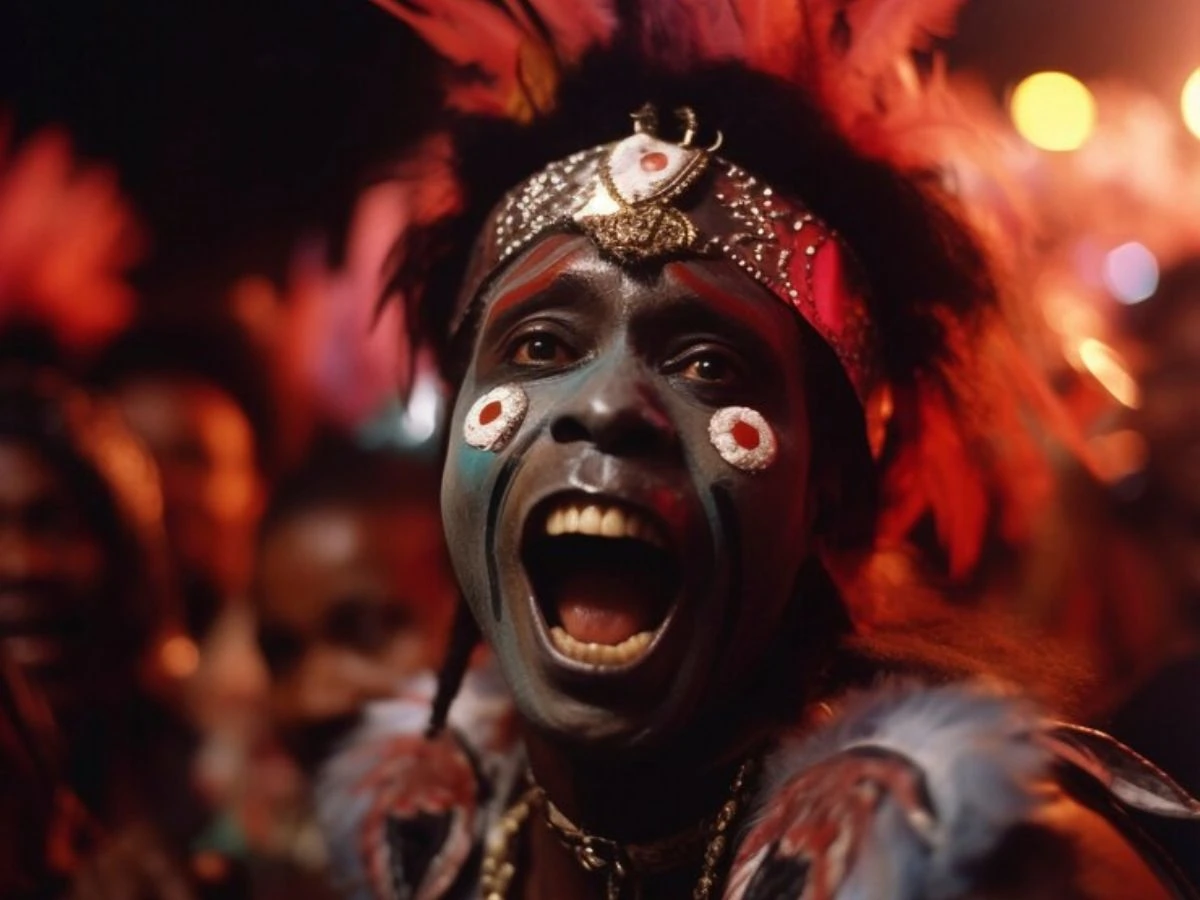West Africa holds some of the world’s most profound spiritual traditions, and few experiences compare to witnessing the Togo Voodoo Festival firsthand. The annual voodoo festival, also celebrated in Ouidah, Benin, is a major cultural event that draws worshippers and visitors from across the region, showcasing vibrant ceremonies and the deep significance of voodoo traditions, alongside the vibrant atmosphere of colourful markets . This extraordinary celebration offers travellers a rare glimpse into authentic Vodun practices that have shaped cultures across continents for centuries. Unlike commercialised festivals elsewhere, Togo’s Voodoo Festival maintains its genuine spiritual essence whilst welcoming respectful visitors to observe ancient rituals that connect communities with their ancestors.
For culturally curious travellers seeking transformative experiences beyond typical tourist destinations, the Togo Voodoo Festival represents an unparalleled opportunity to witness living history. Benin and Togo share a rich heritage of traditional ceremonies and vibrant festival scenes, making them key destinations for those interested in Africa’s unique cultural landscape. The festival combines vibrant ceremonies, traditional music, sacred dances, and spiritual practices that have remained largely unchanged for generations, including the reverence for voodoo gods . Whether you’re drawn by anthropological interest, spiritual curiosity, or simply the desire to experience something truly unique, this festival delivers an authentic cultural immersion that will fundamentally change your perspective on African spirituality and community traditions.
The festival is especially appealing to seasoned African travellers seeking authentic and immersive experiences that go beyond the ordinary. Whether you’re drawn by anthropological interest, spiritual curiosity, or simply the desire to experience something truly unique, this festival delivers an authentic cultural immersion that will fundamentally change your perspective on African spirituality and community traditions.
What is the Togo Voodoo Festival?
The Togo Voodoo Festival, known locally as the Festival International du Vodoun, celebrates the rich spiritual heritage of Vodun religion, which originated in this region of West Africa. This annual celebration brings together practitioners, spiritual leaders, and communities from across Togo and neighbouring countries. Benin Voodoo, with its deep cultural significance and vibrant festivals, is closely connected to these traditions, making the region a focal point for those interested in exploring Vodun practices and their role in cultural tourism. The festival honours ancestors, features sacred rituals, and preserves ancient traditions that form the foundation of their cultural identity.
Vodun, often misunderstood in Western contexts, represents a sophisticated spiritual system that emphasises harmony between the living, ancestors, and natural forces. The festival showcases this complexity through elaborate ceremonies featuring traditional drumming, ritual dances, spiritual possessions, and offerings to various deities known as lwa or vodun. Various ethnic groups participate in the festival, each contributing their unique traditions and customs, which enrich the diversity and vibrancy of the celebrations. Participants dress in ceremonial attire, create intricate altars, and perform rituals that have been passed down through generations of spiritual practitioners.
The festival serves multiple purposes within Togolese society. It functions as a religious observance, cultural preservation effort, and community gathering that strengthens social bonds. For visitors, it provides an authentic window into African spirituality that challenges preconceptions and offers profound insights into belief systems that have influenced cultures worldwide, including those in Haiti, Brazil, and the southern United States.
Historical Background in West Africa
Vodun practices in Togo trace their origins back over 6,000 years, making them amongst the world’s oldest continuous religious traditions. The religion developed along the West African coast, particularly in areas that now comprise Togo, Benin, and parts of Ghana and Nigeria. These spiritual practices survived the devastating impact of the Atlantic slave trade, with enslaved Africans carrying their beliefs to the Americas, where they evolved into related traditions like Haitian Vodou and Brazilian Candomblé.
Royal palaces in the region stand as important historical sites, reflecting the deep connection between local leadership and Vodun traditions. These palaces are not only architectural landmarks but also centers of cultural heritage that have played a significant role in the preservation and practice of Vodun.
The modern festival began in the 1990s as Togo emerged from decades of political isolation. Religious leaders and cultural advocates recognised the need to celebrate and preserve Vodun traditions that had been suppressed or driven underground during colonial periods and subsequent political upheavals. As Vodun spread to other regions, the Ashanti Kingdom also became recognized as an important cultural and historical center in West Africa, particularly along the historical slave route . The festival now serves as both a spiritual gathering and a statement of cultural pride, demonstrating the resilience of African traditional religions in the face of historical challenges.
When and Where to Experience the Festival
The Togo Voodoo Festival typically takes place in January, coinciding with the country’s National Voodoo Day on January 10th. The main celebrations occur in Ouidah, a coastal city that serves as the spiritual heart of Vodun culture, though related ceremonies happen throughout southern Togo during this period. The festival usually spans several days, with the most significant rituals occurring on the official holiday itself.
Ouidah holds particular significance as a major departure point for enslaved Africans during the colonial period, making it a place of pilgrimage for people of African descent worldwide, where thatched houses are part of the scenery. The city’s Route of Slaves memorial and the Sacred Forest of Kpassè provide powerful historical context for the festival’s spiritual activities. These locations host some of the most important ceremonies, including rituals at the Tree of Forgetfulness and the Door of No Return.
Planning your visit requires careful timing, as accommodation in Ouidah fills quickly during festival periods. The coastal location offers pleasant weather in January, with temperatures averaging 25-30°C (77-86°F) and minimal rainfall. However, the harmattan winds from the Sahara can create dusty conditions, so visitors should prepare accordingly. The festival’s schedule varies each year, with some ceremonies beginning before dawn and others continuing late into the night, requiring flexible planning and stamina from attendees.
Transportation to Ouidah from Lomé, Togo’s capital, takes approximately two hours by road. Many visitors also access the festival through Cotonou, Benin’s largest city, which offers more international flight connections and is just 45 minutes from Ouidah. Cross-border travel between Togo and Benin is relatively straightforward for most nationalities, though visa requirements should be verified in advance. It is essential to have up to date information on travel advisories, visa requirements, and health regulations to ensure a smooth journey. Having a knowledgeable tour leader can be invaluable for navigating the festival, managing itinerary changes due to unpredictable factors, and ensuring a safe and flexible travel experience.
What to Expect at the Voodoo Ceremony and Festival
The Togo Voodoo Festival presents a sensory-rich experience that can feel overwhelming for first-time visitors. Expect to encounter intense drumming that seems to pulse through your entire body, as traditional percussion instruments create complex rhythms that guide ceremonial activities. The sound of drums, bells, and chanting creates an almost hypnotic atmosphere that draws participants and observers into the spiritual energy of the celebrations.
Visual elements of the festival are equally striking. Participants wear elaborate costumes featuring bright fabrics, intricate beadwork, and symbolic accessories that represent different spiritual entities, reflecting aspects of village life . You’ll witness the creation of temporary altars decorated with offerings including food, alcohol, flowers, and personal items meant to honour specific ancestors or deities. Sacred symbols drawn in sand or chalk mark ceremonial spaces, whilst colourful flags and banners identify different spiritual houses or communities.
The most profound aspect of the festival involves witnessing spiritual possession, where practitioners enter trance states believed to allow communication with ancestors and deities. These moments require respectful observation, as they represent deeply sacred experiences for participants. The possessed individuals may speak in ancient languages, perform specific dances, or deliver messages to community members. Whilst this can appear dramatic to outsiders, it’s treated with reverence by the community.
Food plays an important role throughout the festival, with vendors offering traditional Togolese dishes and ceremonial foods prepared according to spiritual requirements. Expect to encounter palm wine, locally brewed beverages, grilled meats, and various preparations of yam, cassava, and plantain. Sharing food is considered an important part of community building during the festival.
Another unique and intriguing aspect of the festival experience is the opportunity to visit Lomé’s bizarre fetish market. This marketplace, known for its unusual and traditional spiritual items, offers a glimpse into the local culture and the fascinating practices that are part of the festival atmosphere.
The festival also includes educational components, with spiritual leaders often willing to explain ceremonies to respectful visitors. Some events specifically welcome international guests, providing opportunities to learn about Vodun philosophy, healing practices, and the religion’s historical development. However, certain rituals remain private or restricted to initiated practitioners, and visitors must respect these boundaries.
Exploring Local Markets
No visit to West Africa is complete without immersing yourself in the vibrant local markets that pulse at the heart of daily life in Togo and Benin. These bustling hubs are more than just places to shop-they are living museums of culture, tradition, and community, offering a window into the region’s fascinating history and strong traditional beliefs.
During the Ouidah Voodoo Festival, these markets come alive with an energy that is truly infectious. Here, you’ll find stalls overflowing with colorful textiles, intricate traditional crafts, and a dazzling array of elaborate costumes worn by voodoo adepts and traditional chiefs. The markets, including the largest stilt village nearby, are a gathering place for local communities, where the rhythms of daily life blend seamlessly with the spiritual pulse of the voodoo religion. As you wander through the lively alleys, you’ll encounter local fishermen from Grand Popo selling their fresh catch, traders offering handmade Ashanti artefacts, and vendors preparing local delicacies in open-air kitchens.
One of the most remarkable events for any traveler is a visit to the fetish market in Lomé, Togo. This bizarre and fascinating market is unlike any other, featuring a rich collection of fetish objects, traditional cloth, and ritual items used in voodoo ceremonies. The market is a testament to the enduring power of voodoo culture, and provides a rare opportunity to learn about the spiritual practices that have shaped the region for centuries. Don’t miss the chance to sample authentic dishes at local restaurants, where you can try specialties like fufu and banku, and experience the flavors that define West African cuisine.
The markets are also deeply intertwined with the region’s historical and spiritual capital. Echoes of the ancient kingdom and the legacy of the slave trade are present in the crafts, artefacts, and stories shared by local traders. Sites like Cape Coast Castle and the Ashanti kingdom’s rich collection of traditional crafts serve as poignant reminders of the area’s complex past and its resilience.
As evening falls, the excitement continues with the traditional fire dance0a spectacular display performed by local communities that celebrates the enduring spirit of West Africa. The dance, with its hypnotic rhythms and dramatic movements, is a highlight of the voodoo festival and a powerful expression of the region’s cultural heritage.
Exploring the local markets of West Africa is an essential part of any exciting trip to Togo and Benin. Whether you’re searching for unique souvenirs, eager to witness voodoo ceremonies, or simply want to experience the daily lives of local people, these markets offer an unforgettable journey into the heart of West Africa’s traditions and community spirit.
Travel Tips for Attending the Voodoo Festival
Successful attendance at the Togo Voodoo Festival requires careful preparation and cultural sensitivity. First and foremost, approach the experience with genuine respect for the spiritual significance of the events you’ll witness. This isn’t entertainment but rather sacred religious practice, and your behaviour should reflect this understanding. Dress modestly, avoid disruptive behaviour, and always ask permission before photographing people or ceremonies.
Health preparations are essential for travel to Togo. Consult a travel medicine specialist at least six weeks before departure to discuss required vaccinations, including yellow fever, which is mandatory for entry. Malaria prophylaxis is strongly recommended, and you should pack insect repellent, sunscreen, and a basic first aid kit. Drink only bottled or properly purified water, and be cautious with street food if you have a sensitive stomach.
Accommodation options in Ouidah range from basic guesthouses to mid-range hotels, but luxury options are limited. Book well in advance, as the festival attracts visitors from across West Africa and beyond. Consider staying in nearby Cotonou if Ouidah accommodations are unavailable, though this requires daily travel to festival events. Bring cash in West African CFA francs, as credit card acceptance is limited outside major hotels.
Language preparation can enhance your experience significantly. Whilst French is the official language in Togo, learning basic greetings in local languages like Ewe or Fon demonstrates respect and often leads to warmer interactions with locals. Many spiritual leaders speak some English, but having a local guide or translator can provide deeper insights into ceremonial meanings and cultural context.
Pack lightweight, breathable clothing in neutral colours, comfortable walking shoes, and a hat for sun protection. Bring a small torch for early morning or evening ceremonies, and consider packing earplugs if you’re sensitive to loud drumming. A respectful attitude, open mind, and willingness to step outside your comfort zone are your most important preparations for this transformative cultural experience.
Conclusion
The Togo Voodoo Festival offers an extraordinary opportunity to witness authentic African spirituality and participate in cultural traditions that have shaped civilisations for millennia. This remarkable celebration challenges preconceptions, provides profound insights into human spiritual expression, and creates connections between visitors and one of the world’s most resilient cultural traditions.
For travellers seeking experiences that transcend typical tourism, the festival represents everything that makes cultural immersion so powerful-authenticity, spiritual depth, historical significance, and genuine human connection. The memories and insights gained from respectful participation in this sacred celebration will influence your perspective on spirituality, community, and cultural diversity long after you return home.
If you’re ready to embark on this transformative cultural journey, remember that the most meaningful travel experiences require thoughtful planning and expert guidance. The Togo Voodoo Festival awaits those brave enough to step beyond their comfort zones and open their hearts to one of humanity’s most profound spiritual traditions.
At Undiscovered Destinations with 20 years of experience we craft meaningful cultural journeys that honor local traditions while giving deep insights into spiritual practices. Our expert local guides and thoughtfully curated itineraries ensure you immerse yourself in the Togo Voodoo Festival with the reverence and respect it deserves. Book your adventure today and step into a world where ancestral spirits come alive.
